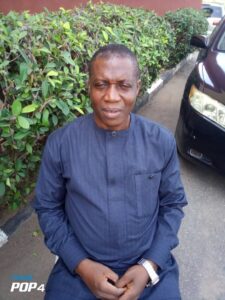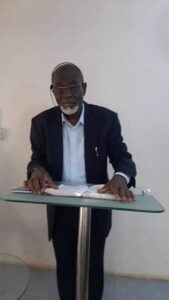Christianity as a religion in Nigeria keeps spreading, evident from the expanding population of the membership bases of the orthodox, Protestants and Pentecostals across the country. Denominations are springing up like mushrooms, with older, established ones emphasising their presence through building of gigantic, state-of-the-art worship centres. Yet, there’s the big question of how impactful the religion has been in terms of serving as a tool or platform to drive positive change in the nation’s socio-political space.
Kayode Adedayo, an Abuja based civil servant who doubles as a pastor in one of the most prominent denominations is of the view that the Christian faith has brought manifold blessings to both the believers, in spiritual terms, as well as the entire nation in terms of the tangible socio-economic impact that comes with its right practice. “It’s no secret that the Christian faith is a giving faith, preaching love and showing it physically. It is evident from what we can all see around us,” Adedayo said. He stated that his own denomination, and indeed, many others in such big league, embark on significant Corporate Social Responsibility, CSR initiatives to improve the areas where they are located, especially through infrastructure provision. “My church embarked on a complete rehabilitation of the long stretch of road that passes through that community, after it was obvious government had no plans to take on the responsibility,” he said. He added that exceptionally bright children of the indigent whose parents ran into difficulties in paying fees have often benefitted from a scholarship scheme in place at the primary school established by the church, even when they belong to another denomination or even, a different religion.
Many of the big denominations have made huge investments into the education sector, establishing primary, secondary, and tertiary institutions, which typically strive to maintain decent moral standards, while offering qualitative education. These institutions usually do not come cheap, and this has generated its share of criticisms. But the benefits are undeniable. These institutions, countrywide, also employ thousands of staff, taking many out the category of the unemployed. Some denominations have also built and operated top range and medium scale hospitals, all a plus to the health sector.
However, Adedayo had his reservations about what he termed “a particular dark spot.” He was bothered about what he called the inappropriateness of the content being served from the pulpit in many churches. ” If our mission in the Christendom is to revive this nation in spiritual and moral terms, there is the urgent need to de-emphasize teachings, mostly motivational on the issue of prosperity. Prosperity is good. But it is not the main thrust or base of true Christian faith. It is just an addition, that shouldn’t take up most hours of preaching,” he noted. According to him, “youths in particular, belonging in the present Nigerian society where having much money is perhaps the only index of measuring success may fail to draw the line between the worldly and the true spiritual or Christian concept of success.”
On his part, the Secretary of Evangelical Church Winning All, Lagos-West District Church Council, DCC, Rev. Dr. Kolawole Verrals, approached the issue of the relevance of the Christian faith in reviving Nigeria through a political prism. “We need to preach morality through tested character, for Christianity to have full impact on Nigeria,” he posited. According to him, Christians have not shown enough character to justify any claim to be typical agents of change, particularly in the political space. “We do not have a character that has proven that Christianity can change anything. So, talking about Christians in government today, do we have them, does their ethos project the church in good light?,” he asked.
Verrals’ rhetorical standpoint is not uninformed. Despite being a cleric of note, he has been involved in politics for almost two decades, and was Special Adviser On Religious Matters to the Lagos State Government. “I have played politics based on faith-based campaigns and have discovered that many Christians get involved because of the desire to take their own peanuts and little packages, and move out. Not because they want to impose certain virtues or influence certain things that are relevant to bring about the transformation people yearn for,” he stated.
According to Verrals, “Nigeria’s problems are multidimensional, requiring a leadership with equal multidimensional approach. And if you ask me who that sort of leader should be, I would say it is God, and somebody whose heart has been prepared to have mercy on the poor masses. Take that out of it, they are all the same. We’ve had Christian’s coming with their Christian names and sentiments, to tell us that they will go there and live for Christ, and a lot of them have ended up no different from those who don’t even know Christ” Verrals stated.

Verrals admitted it’s almost impossible to identify a Christian that will assume political office and maintain the righteous path in his dealings. This will require adherence to true dictates of the faith, which is still mostly a scarce quality. ” People of the Christian faith have been in power, and having served in the corridors of power, I know the pressure to live against your religious belief as an individual is much. The circle is largely that of people who do not believe in morality, and your belief in morality can make you unpopular,” he said, noting that the chances of a true Christian having an upper hand in the Nigerian political circle today is not too high.
In Verral’s view, the way to go for the genuine Christian community towards ensuring revival of the country in all ramifications is to float and activate a realistic platform that will churn out political leaders that will stay true to the faith. “Go through the statistics of the political parties, and you realise the majority of card-carrying members are not Christians. I tell Christians we need to play strategic politics, by being card-carrying, grassroots members who are involved and recognised in our areas and streets. Christians tend to only concentrate on church activities, leaving others, some of even no religion at all, to be in the majority as card-carrying members.
Verrals is not alone concerning the need for Christians to get involved in politics of purpose. Pastor Segun Balogun of Dayspring Divine Assembly, Ilorin, is of same view. According to him, the Christian faith in the genuine form can save and move Nigeria forward. But there is a snag. “Christianity is just a faith in the midst of others. It has not distinguished itself yet. Things can only get better if the Christians themselves device the means of ascertaining that genuine Christians represent their block in politics,” he stated.
Balogun, however, pointed out that so-called Christians in public office that soiled their hands are not ideal Christians. “We get certain issues terribly wrong in attempting to classify who is a Christian. No one is a Christian by birth or membership of a denomination, or church title. Christianity is “doing” the will of God, a relationship and not a religion, and the question to ask is if our political office holders display any semblance of Christ. The answer being a loud no,” he said. He added that for most of the so-called Christian political office holders who turned out as corrupt as others, they were put in office by godfathers, and not by any tangible effort or endorsement of their Church or denomination. For him, in Nigeria as in other parts of the world, due to the separation of state from church, the leaders that the system throws up to represent the quota for Christians are not necessarily committed Christians. “They are often just politicians, mere politicians whose allegiance is to their political parties or class, rather than the tenets of Christianity,” he said.

Balogun, however, believed all hope was not lost. “Those leaders referred to as Christians can only help in reviving the country if they are sold out uncompromisingly to Jesus Christ and what He stands for. The Bible says he is light and in him there is no darkness at all. And with God, all things are possible,” he stated.

















